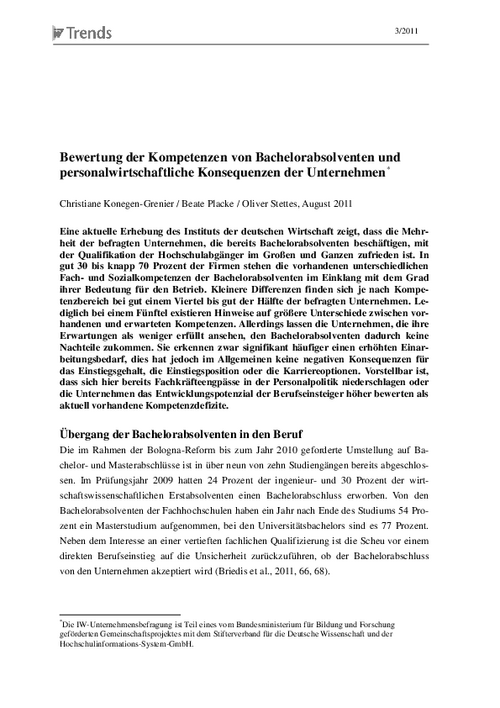According to a company-survey, the majority of firms are generally satisfied with the performance of bachelor-graduates. In 30 to 70 percent of the companies the professional and social skills of the graduates match company expectations. Only one fifth of the firms have experienced a significant gap between the actual and expected skills of bachelor-graduates. While a lack of specific skills may spur additional initial training it does not generally have adverse consequences for the affected bachelor-graduates on entry wages, entry positions and career opportunities. This absence of negative effects may be due to the growing shortage of skilled jobseekers and/or to a disposition of firms to value the learning capacity of young professionals higher than their existing knowledge.
Download | PDF


